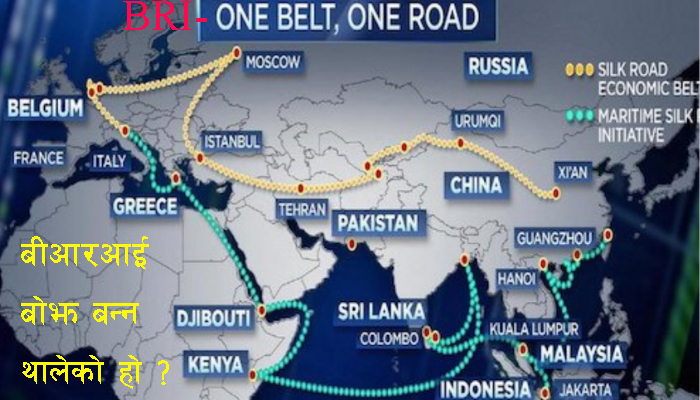 The analysis of China's BRI is becoming a burden in the media. According to a report, it is unlikely that Italy will renew the BRI agreement with China next year.
The analysis of China's BRI is becoming a burden in the media. According to a report, it is unlikely that Italy will renew the BRI agreement with China next year.
Not only did the BRI fail to produce concrete results and increase tensions, China's appeals are also becoming weaker. At the same time, German Chancellor Olaf Scholz, after expressing his displeasure with BRI, has warned of an economic crisis.
Russia's war against Ukraine and Western response to China's policy and sanctions against Russia have limited the speed of BRI. The attractiveness of new projects agreed under BRI has started to decrease, it is becoming difficult for Chinese companies to find partners for BRI.
According to a report by the Green Development and Finance Center of Fudan University in Shanghai, 14 countries including Russia, Angola, Sri Lanka, Nepal and Peru saw a 100 percent decrease in 2022 compared to 2021.
From this it is known that the degree of motivation of BRI is decreasing. The real estate market is shrinking in the Chinese economy. Population is decreasing and productivity has not increased. The global geopolitical environment is becoming challenging. China itself has had to face such challenges.
For the Communist Party of China, China's investment in Pakistan has decreased by 34 percent. China's investment in Africa has declined the most. There is a decrease in Chinese investment in West Asia. Ecuador's Coca Codo Sinclair hydropower project and Angola's housing project are very large, but the BRI partners are worried because of construction flaws.
Other problems include rising corruption and debt, Chinese companies canceling projects due to financial problems, over-valuation, increased opacity in investment and construction, projects like Sri Lanka's Hambantota port and Colombo business center are matters of concern and problems. Who could not give enough return.
Ad Data 2021 report says – 35 percent of BRI schemes are corrupt. Labor abuse and environmental damage are involved. Due to public protests, many countries have started canceling or postponing BRI's big plans. Malaysia has canceled an 11.6 billion dollar infrastructure plan. Kazakhstan and Bolivia have also canceled plans worth $1.5 billion. Costa Rica, Sudan, Ethiopia, Ecuador, Zambia and Cameroon have canceled the Chinese plan of 3 billion dollars each.
Due to the corona epidemic, the economic activity became relaxed, the BRI project could not give benefits, the debt and interest burden increased. This is why the negativity towards BRI is increasing. Sri Lanka and Pakistan are the two countries facing a major crisis due to BRI's debt load.
According to the Overseas Development Institute, UK, Sinohydro has released details of 15 projects worth 2.4 billion dollars, including the Kunzvi Dam power project in Zimbabwe.
These are also problematic projects. It seems that the awareness about the risks in the BRI project has started to increase. According to a survey report by Australia's Lowy Institute, Indonesians are beginning to doubt Chinese investment. According to a survey, China will look the most dangerous in ten years.
The growing economic recession within China and in the outside world has increased the negative impact on BRI. It seems that China has understood all this and has started the reform process taking into account the world reaction against BRI. What is surprising is that Chinese leaders have rarely spoken about the context of BRI. In 2022, President Xi Jinping did not mention BRI in any program. Those who call it the BRI Centenary Project are now starting to worry about the reforms.
Experts say - Now it seems that a solution is needed to remove the growing concern of BRI.
- Dr. Binita


